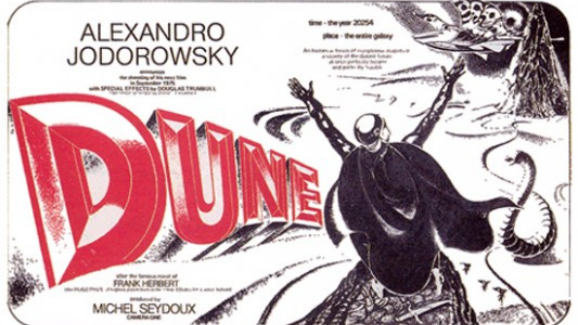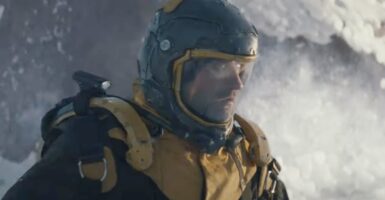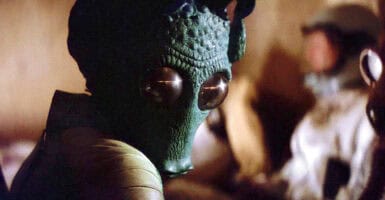Jodorowsky’s Dune Director Talks About Making The Documentary A Reality
This article is more than 2 years old
 Before David Lynch directed the 1984 film adaptation of Frank Herbert’s science fiction novel Dune, film producer Arthur P. Jacobs purchased the film rights in 1971. After the success of Planet of the Apes in 1968, Jacobs looked far and wide for the next big science fiction film to take the country by storm. Originally, Jacobs wanted director David Lean to take charge of the Dune film adaptation, but later the project fell into director Alejandro Jodorowsky’s lap.
Before David Lynch directed the 1984 film adaptation of Frank Herbert’s science fiction novel Dune, film producer Arthur P. Jacobs purchased the film rights in 1971. After the success of Planet of the Apes in 1968, Jacobs looked far and wide for the next big science fiction film to take the country by storm. Originally, Jacobs wanted director David Lean to take charge of the Dune film adaptation, but later the project fell into director Alejandro Jodorowsky’s lap.
Coming off the cult success of El Topo and Holy Mountain in 1975, Jodorowsky took on adapting Dune in collaboration with Salvador Dalí, Orson Welles, Gloria Swanson, David Carradine, Geraldine Chaplin, Alain Delon, Hervé Villechaize, H.R. Giger, and Mick Jagger. Jodorowsky wanted to make Dune into a 10-hour epic with music by Pink Floyd, art direction by Jean Giraud (Moebius), and special effects by Dan O’Bannon. Salvador Dalí was cast as Padishah Emperor Shaddam IV of House Corrino, but pre-production dried up due to limited funds.
Apparently, Alejandro Jodorowsky spent $2 million of the $9.5 million budget on pre-production, and Arthur P. Jacobs had no choice but to shut down the film completely in 1976. By the end, Jodorowsky’s screenplay would have resulted in a 14-hour adaptation of the science fiction novel, as the Chilean-French director took many liberties with Herbert’s Dune.
The film rights lapsed in 1982 and producer Dino De Laurentiis snagged them for David Lynch to take the helm on a new film adaptation. More than 30 years later, director Frank Pavich has made a documentary about Jodorowsky’s failed attempt to bring Dune to the big screen. Jodorowsky’s Dune premiered at this year’s Cannes Film Festival and was a selection at this year’s Fantastic Fest in Austin, Texas.
While the earlier film adaptation never started shooting, Jodorowsky’s Dune explores almost every facet of pre-production, including original storyboards, costume designs, and additional artwork. In an 21-minute interview with Dangerous Minds, Frank Pavich talks about how the films of Alejandro Jodorowsky, namely El Topo and Holy Mountain, changed his life as a film enthusiast. Taking on the documentary was a big undertaking, but Alejandro Jodorowsky himself supported the project and became good friends of the avant-garde filmmaker.
From the reviews of the documentary, it sounds like Frank Pavich makes you feel as if you are actually watching Jodorowsky’s film adaptation of Frank Herbert’s novel. While the film doesn’t kowtow to conventional documentary structure, it takes advantage of the vast collection of materials relating to Jodorowsky’s scuttled Dune project. Along with talking-head interviews with contemporary filmmakers such as Nicolas Winding Refn (Drive, Only God Forgives) and Richard Stanley (Hardware), the documentary is a sight to see as it examines the unmaking of the legendary film project.
The new film won the Audience Award for Best Documentary at this year’s Fantastic Fest and premiered to rave reviews from Variety and The Hollywood Reporter at the Cannes Film Festival. It seems like the documentary is for anyone who likes mind-bending and trippy science fiction, the work of Alejandro Jodorowsky, or Frank Herbert’s Dune.
Jodorowsky’s Dune has yet to receive a release date from Sony Pictures Classics, but it’s expected to open in early 2014.












